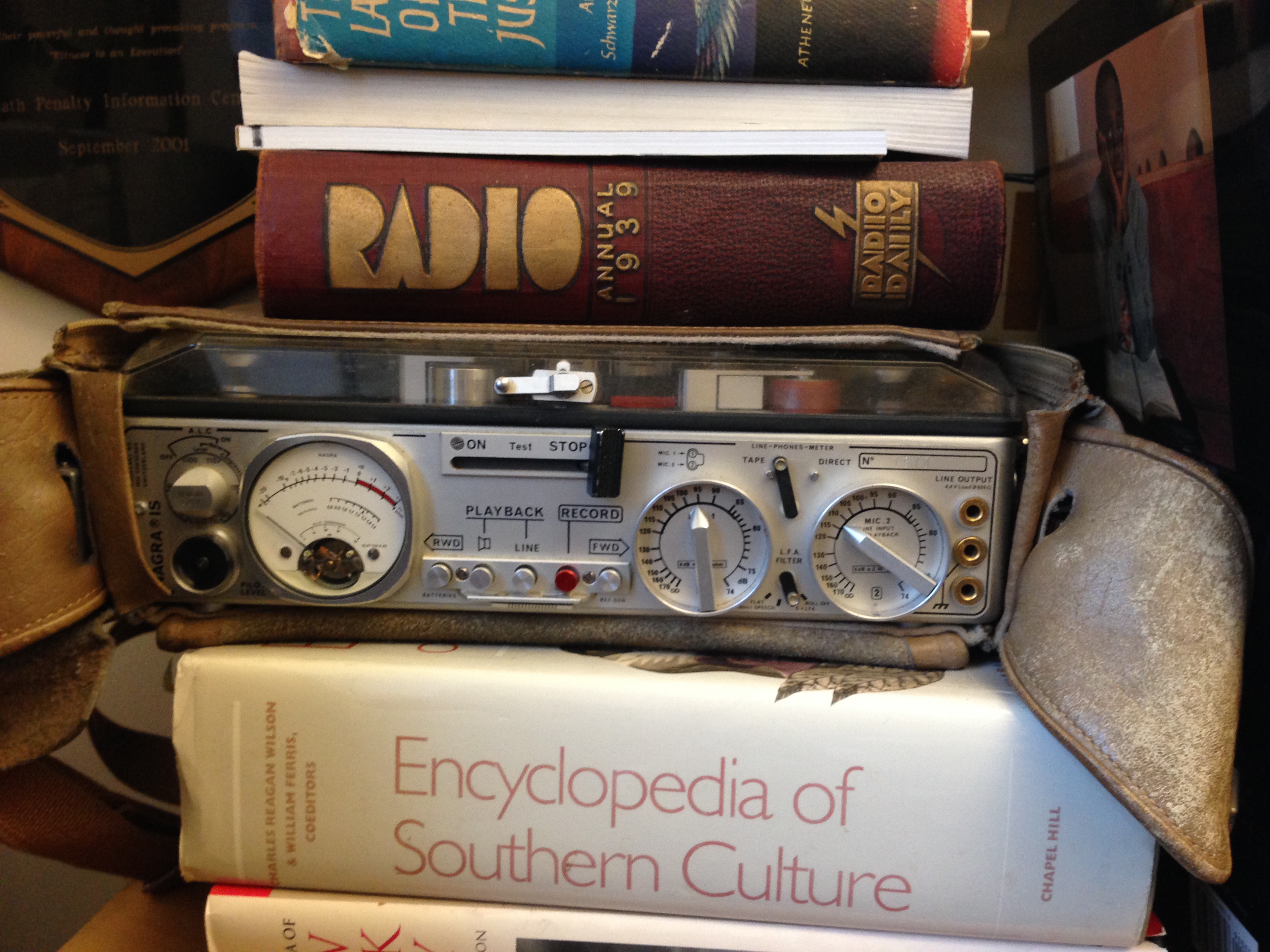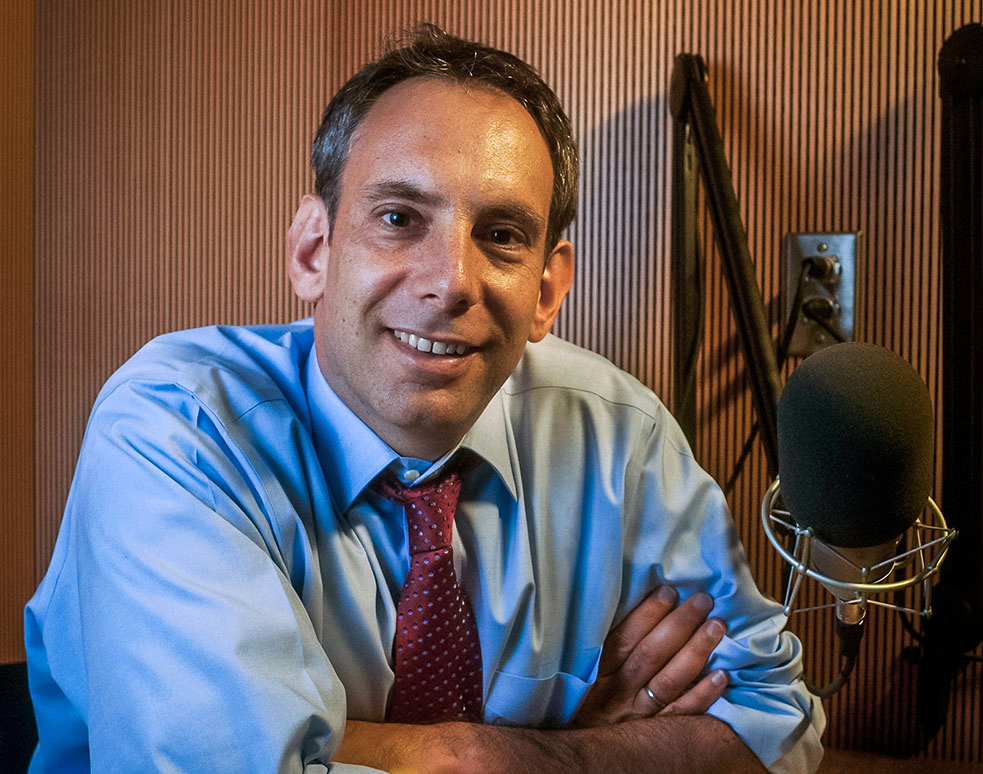
Dave Isay still keeps the tape recorder he brought to his very first interview on his bookshelf. Photo: Amy S. Choi
The core of StoryCorps is listening. It’s about honoring another human being by simply listening to them.
The joke, of course, is that I’m a terrible listener. I really am — ask anybody. I’m just so easily distracted by my phone or email. I’m terrible.
But that’s why StoryCorps is so important. It’s about learning to listen, and giving the gift of listening at a time when we are all barraged with so much other noise. It’s about shaking someone on the shoulder, and saying, “Hey. Let’s talk about what’s really important to you.”
When I first started reporting, I didn’t understand that. I was 21 years old. I had finished undergrad at NYU, and was enrolled in medical school. I didn’t really want to go, but I didn’t know what else I was supposed to do and everybody else in my family was a doctor. I took a year off before going, and decided to do a story on the Stonewall Riots.
I can’t remember who my first interview subject was. But I remember that it was in a movie theater in New York’s Greenwich Village. I brought a tape recorder that I still have today. The minute I hit record, I knew that being a journalist and interviewing people was what I was going to do for the rest of my life. I told the guy I was interviewing — maybe the theater owner — “Hey, this is the first interview of the first documentary I’m ever going to make.”
And the guy looks at me and says, “You know what? This is not about you.”
He was absolutely right. It was such a great lesson. In the end, I felt very proud of the piece I created. I withdrew from medical school and started making radio documentaries, with his words in mind.
Everybody should have the opportunity to be listened to. People know StoryCorps from the stories we put on the air, but the purpose of StoryCorps is not the final product; it’s the interview itself. It is about the poetry of the human voice.
You can find poetry and beauty in the people all around you. It’s not about objects or possessions, or the famous people who tend to get media attention. Think about how sometimes you’re in a bad mood and nothing is resonating with you. You go to the deli or the store and you overhear a conversation and catch a tidbit of a person’s life, and you just think, “Oh my god, this is an amazing person.” You can hear a person’s story and feel more connected to them — and to the universe.
My dad was the first person who listened to me — he was a very thoughtful and compassionate guy. My mom was a great listener, too. I also had a great aunt, my grandmother’s sister, who I would hang out with and watch Knicks games with when I was a kid. She was really fiery, swore and smoked all the time, had a raspy voice — my kind of person! She was also a very generous listener. All of them were genuinely interested in me, and willing to admit that they were wrong when they made a mistake. That shaped me as a person.
My recurring happy dream when I was a kid: I would be on a carnival-type ride that spun in a circle and, when it stopped, I would be at an old couple’s house. We’d sit and have tea, and then I would get back on the ride and spin backwards. That was a dream I’d always hope for. Maybe I was insane, but I think it’s telling. StoryCorps is about stopping the ride — going from 200 miles an hour to zero — to honor other people whose stories aren’t usually heard, whose stories we might lose.
By listening to each other, I think we can move the needle in this country toward becoming more compassionate and thoughtful. I think we’re in the first pitch of the first inning of a very long game.
—as told to Amy S. Choi

StoryCorps has archived more than 50,000 stories — from the kind of everyday people that the mainstream media tends to ignore. Dave Isay, its founder, is the winner of our 2015 TED Prize. Watch him share his bold, audacious wish for StoryCorps — and the world — during a free livestreamed session of TED2015 on March 17 at 5pm PDT. And stay tuned for this column every other week on the TED Blog, as we chart the evolution of his TED Prize wish.
Comments (5)